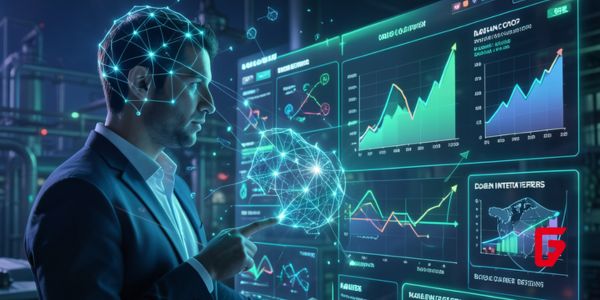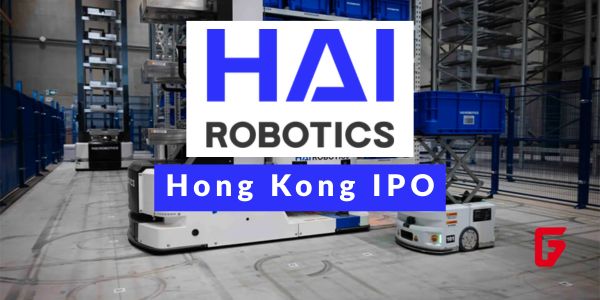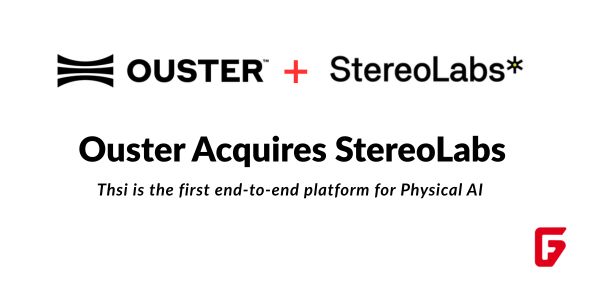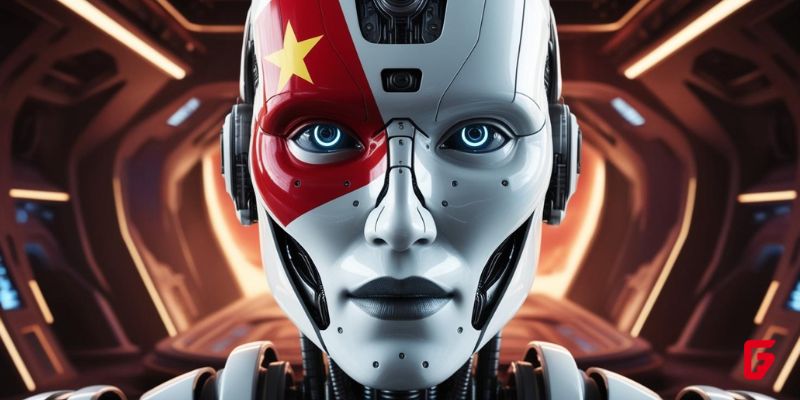Startups & Business News

The world of logistics is on the brink of a major transformation, and Amazon is once again at the center of the action. The company, already famous for its drone delivery tests and vast robotic warehouse fleets, is now developing humanoid robots designed to walk right up to your door with packages. This isn’t just another tech experiment—it’s a signal that the era of human-like machines in everyday logistics is fast approaching.
Why Humanoid Robots?
Traditional warehouse robots are efficient, but they’re limited to specific environments—rolling along fixed paths or working in isolated automation cells. Amazon’s new approach is different. Humanoid robots can navigate spaces built for people, handling stairs, tight corners, and unpredictable obstacles. This flexibility could make them ideal for both warehouse operations and last-mile delivery.
Amazon’s partnership with Agility Robotics is already bearing fruit. Their bipedal robot, Digit, is being tested in Amazon’s research facilities, performing repetitive tasks like moving empty totes. Digit’s human-centric design allows it to work safely and collaboratively alongside people, supporting workplace safety and freeing up employees for less monotonous, more complex tasks.
Behind the Scenes: AI at the Core
The real magic lies in the AI foundation models powering these robots. Amazon is developing systems that let robots understand and act on natural language commands. Imagine saying, “Pick up that yellow tote,” and watching a robot respond instantly. This kind of agentic AI—robots that can interpret, reason, and act on human instructions—is a leap forward from the rigid automation of the past.
A Broader Robotics Revolution
Amazon isn’t alone in this race. The sudden surge in humanoid robotics in 2025 has seen tech giants like Apple, Nvidia, and OpenAI investing heavily in the field. Apple, for instance, has contributed to new perception systems that give robots near-360° vision, while OpenAI is rumored to be building AGI-powered robots for general-purpose tasks.
Amazon, however, stands out for its scale—already operating over 750,000 robots globally—and its focus on integrating humanoids into real-world workflows.
What’s Next for Delivery?
While Amazon hasn’t announced a specific timeline for deploying these robots to your doorstep, the company is building an obstacle park in San Francisco to accelerate development and testing.
The goal is clear: deliver packages faster, safer, and with less reliance on human labor. As these robots become more capable, they could eventually automate not just warehouses, but the entire last-mile delivery process.
The Human Factor
There’s understandable concern about jobs—humanoid robots could replace some human roles, especially in repetitive or physically demanding tasks. But Amazon emphasizes that these robots are intended to work with people, not just replace them. The hope is that automation will create new opportunities and career paths, even as it changes the nature of work in logistics.
Amazon’s move into humanoid robotics is more than a headline—it’s the next logical step in the evolution of automation. As these robots become smarter and more adaptable, they’ll reshape not just how packages get to your door, but what the future of work looks like in a world driven by AI and robotics.

futureTEKnow
Editorial Team
futureTEKnow is a leading source for Technology, Startups, and Business News, spotlighting the most innovative companies and breakthrough trends in emerging tech sectors like Artificial Intelligence (AI), Robotics, and the Space Industry.
Discover the companies and startups shaping tomorrow — explore the future of technology today.
Trending Companies
Latest Articles

Dwelly Raises $93M to Supercharge AI-Powered UK Rentals Roll-Up
London startup Dwelly just landed $93M to snap up UK rental agencies and inject AI smarts. Founders from Uber and

Encord Raises $60M Series C: Fueling Physical AI Data Wave
Encord just landed $60M in Series C funding to supercharge data tools for physical AI. Founders Eric Landau and Ulrik

Foodforecast Raises €8M Series A to Slash Ultra-Fresh Food Waste with AI
Foodforecast, a Cologne AI foodtech firm, just scored €8M in Series A funding led by SHIFT Invest. Their tools predict

AI-Driven Operational Excellence: How Leaders Scale Ownership, Discipline, and Continuous Improvement in 2026
In 2026, AI scales operational excellence fundamentals—clear ownership, disciplined execution, and continuous improvement—letting leaders focus on outcomes while systems handle

VoiceLine raises €10M to scale voice AI for enterprise frontline teams
Munich-based VoiceLine has closed a €10M Series A round to grow its voice AI platform for frontline sales and service

AI-Driven Logistics & Distribution Transformation: From Insight to Scalable Impact
AI is redefining logistics transformation—from network design to real-time execution. This article explores how data-driven insight, intelligent automation, and scalable

Hai Robotics Hong Kong IPO: From Startup Funding to Warehouse Robot Leader
Shenzhen’s Hai Robotics, pioneer in ACR warehouse robots, files for HK IPO after raising over $500M in funding rounds led

AI-Enabled Process Engineering & Continuous Improvement: Designing Systems That Learn
Explore how AI transforms process engineering and continuous improvement into self-learning systems. This article explains how organizations can design operations

Ouster Acquires StereoLabs: Unified Physical AI Sensing Platform Launches
Ouster’s $35M StereoLabs acquisition fuses lidar and ZED cameras into end-to-end Physical AI sensing. Founders Cecile Schmollgruber and team drive

Bretton AI Lands $75M Series B Funding to Scale AI Agents for Financial Crime and AML/KYC Compliance
Bretton AI’s $75M Series B modernizes AML KYC compliance via AI agents, slashing staffing costs for banks and fintechs like

Axiom Space Raises $350M to Build Commercial Space Station and NASA Spacesuits
Axiom Space has locked in a fresh $350M raise to push its commercial space station and NASA lunar spacesuits toward

Santé Raises $7.6M Seed: AI Fintech Revolution for Wine and Liquor Retail
New York startup Santé secures $7.6M seed to build AI-powered POS for liquor stores, tackling regs & inventory woes after
futureTEKnow is focused on identifying and promoting creators, disruptors and innovators, and serving as a vital resource for those interested in the latest advancements in technology.
© 2026 All Rights Reserved.
![Discover the top 10 AI companies in Germany [1st Edition], revolutionizing industries with cutting-edge technology and innovations.](https://futureteknow.com/wp-content/uploads/2025/02/Top-10-AI-Companies-in-Germany-Leading-the-Tech-Revolution-futureTEKnow.jpg)













